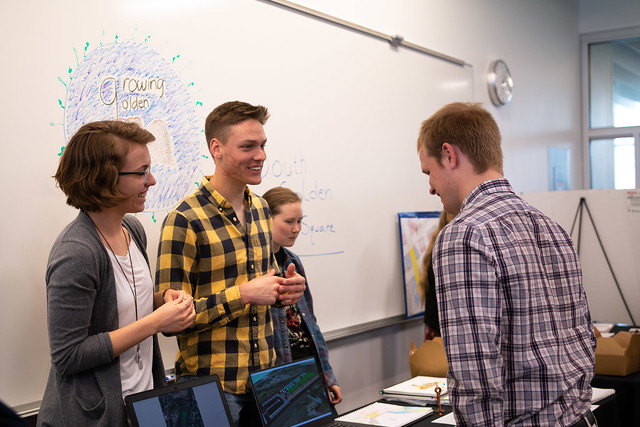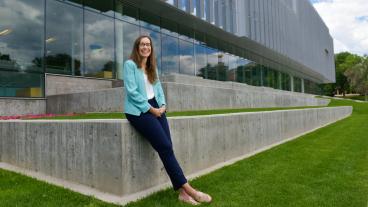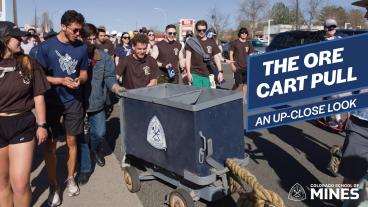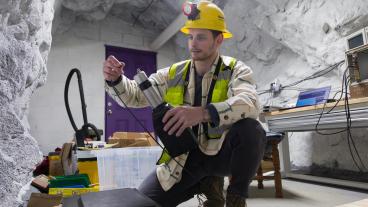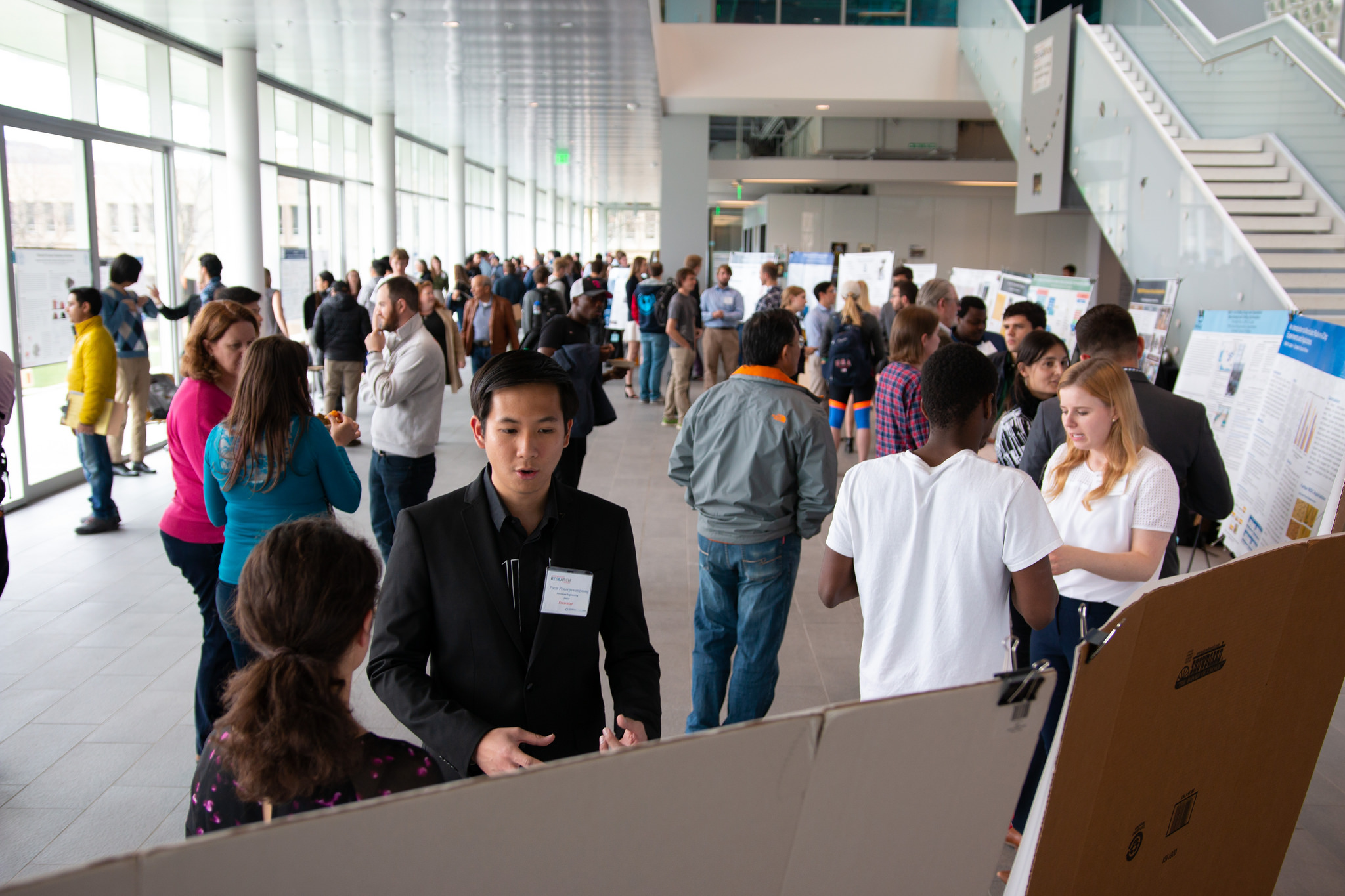
Colorado School of Mines' inaugural Undergraduate Research Symposium, part of Mines Innovation Week, highlighted the work of more than 80 students across all the university's disciplines, with cash prizes given to the top poster presentations.
First place and $550 went to chemical and biochemical engineering majors Meredith Greer and Alex Dailey for their project, "Lipid Nanoemulsion Nanosensors (LNEs) - Ion Detection for Biological Systems." Their advisor was Kevin Cash, assistant professor of chemical and biological engineering.
Second place and $350 were awarded to:
- Evelyn Lundeen (environmental engineering) for "Understanding Nitrogen Removal Processes in Engineered Treatment Wetlands," advised by Jonathan Sharp, associate professor of civil and environmental engineering.
- Daniela Machnik (petroleum engineering) for "Preliminary Modeling Evaluation of Water Ice Extraction from Lunar Permanently Shadowed Craters by Direct Heating of Icy Regolith," advised by Luis Zerpa, assistant professor of petroleum engineering.
Third place and $250 were awarded to:
- Alicia Downard (geophysical engineering) for "Predictive Classification of Submarine Depositional Environments Using Machine Learning Algorithms," advised by Zane Jobe, research associate professor of geology and geological engineering.
- Victoria Martinez-Vivot (mechanical engineering) for "Effective Manufacturing for an Impact Absorbing Hybrid Material System," advised by Terry Lowe, research professor of metallurgical and materials engineering.
- Chase Ganim (mechanical engineering) for "In Operando Spectroscopy of Lithium Batteries," advised by Jason Porter, associate professor of mechanical engineering.
Students said undergraduate research provides a meaningful supplement to classwork, allowing them to apply what they have been learning to a tangible project.
"Mines puts a big emphasis on presenting projects in class," said Jonathan Helland, now a first-year graduate student in electrical engineering who began his research as an undergraduate. "Presenting your own research and getting people excited about it is much more difficult."
Helland's research is focused on computing fundamental frequencies in the presence of damping to help determine if a structure has been damaged during its lifetime. His poster, "Towards Blind Line Spectral Estimation via Atomic Soft Thresholding," represented the culmination of work he started as an undergraduate in computational and applied mathematics, under Electrical Engineering Associate Professor Michael Wakin.
For Amanda Matheson, a senior in engineering physics, conducting research as an undergraduate altered her career plans.
"I liked working on this project so much it convinced me to go to graduate school for materials science," Matheson said. "I initially thought I would go into industry or teaching after graduating from Mines, but now I want to do research like this forever."
Her research, under the mentorship of Physics Assistant Professor Jeramy Zimmerman, is focused on etching silicon in a manner that allows for the growth of solar cells. Matheson will continue her work at the National Renewable Energy Laboratory this summer, with a goal of making larger silicon samples. Her poster was titled "Fabrication of Linear Nanostructures via Laser Interference Lithography."
James Olmsted, a senior in engineering physics, said research has confirmed for him that not every question has an answer. Olmsted and fellow engineering physics seniors Kellen Malone and Braden Egtvedt formed a team mentored by Ed Cecil, university professor emeritus of physics.
They presented a poster titled "Measurement of Residual Radioactive Fallout from U.S. Atmospheric Nuclear Bomb Testing in Colorado Trees." Their research aimed to determine how much fallout landed in Colorado after the above-ground nuclear bomb tests in Nevada in the 1950s and 1960s. Part of their research involved measuring the levels of Cesium-137 in various tree samples.
Egtvedt said the work provided him with a greater appreciation of what researchers do.
"You think you have everything set up, and everything will go perfectly," Egtvedt said. "And then, it never goes that way."
Many of the projects were funded through the Mines Undergraduate Research Fellowship. The fellowship, which provides students with hourly-based employment as a research assistant on faculty-led research projects, is open to all full-time undergraduate students currently enrolled at Mines.
Applications for the 2018-2019 fellowship are being accepted through May 4. The application is available at mines.edu/undergraduate-research/undergraduate-research-fellowship-application. A list of available research projects can be found at mines.edu/undergraduate-research/available-projects.
CONTACT
Katharyn Peterman, Student News Reporter | kpeterma@mymail.mines.edu
Emilie Rusch, Public Information Specialist, Colorado School of Mines | 303-273-3361 | erusch@mines.edu

